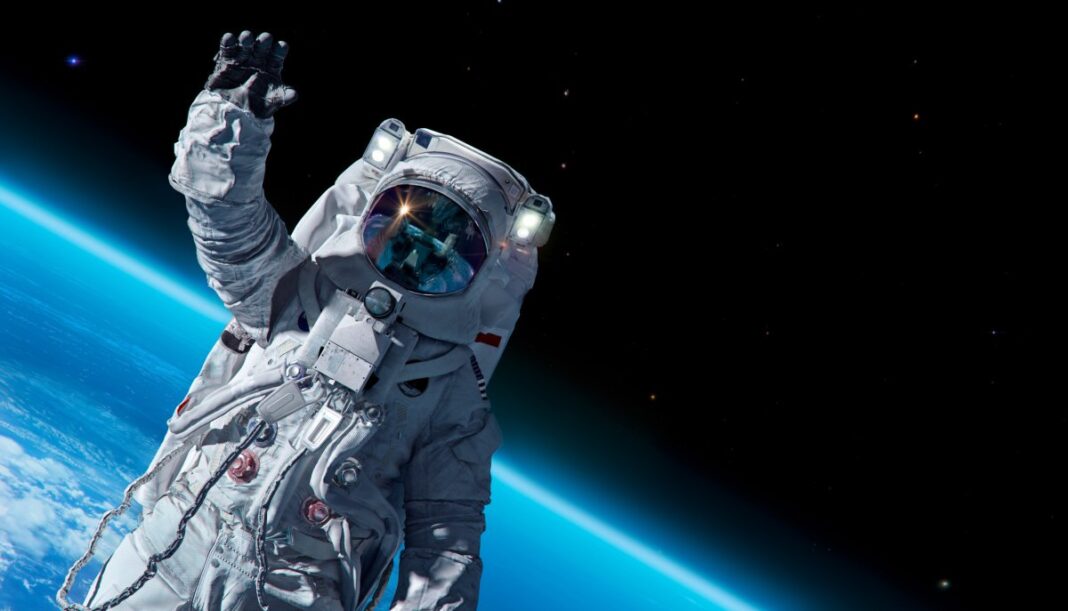Galactic cosmic rays can impair function of erectile tissues, research in rats shows
As if homesickness, wasting muscles, thinner bones, an elevated cancer risk, the inescapable company of overachievers and the prospect of death in the endless vacuum of space were not enough to contend with, male astronauts may return from deep space prone to erectile dysfunction, scientists say.
In what is claimed to be the first study to assess the impact of galactic radiation and weightlessness on male sexual health, Nasa-funded researchers found that galactic cosmic rays, and to a lesser extent microgravity, can impair the function of erectile tissues, with effects lasting potentially for decades.
Raising their concerns in a report on Wednesday, the US researchers said they had identified “a new health risk to consider with deep space exploration”. They called for the sexual health of astronauts to be closely monitored on their return from future deep space missions, noting that certain antioxidants may help to counteract the ill-effects by blocking harmful biological processes.
“While the negative impacts of galactic cosmic radiation were long-lasting, functional improvements induced by acutely targeting the redox and nitric oxide pathways in the tissues suggest that the erectile dysfunction may be treatable,” said Dr Justin La Favor, an expert in neurovascular dysfunction at Florida State University and a senior author on the study.
The warning comes amid a renewed focus on deep space missions, with Nasa and other major space agencies preparing for long-term expeditions to the moon and more ambitious voyages to Mars. Nasa’s Artemis programme aspires to send astronauts to the moon as early as next year, with crewed missions to Mars tentatively lined up for as early as 2040.
Since the dawn of the space age, scientists have explored the impact on human physiology of weightlessness and cosmic radiation – the high-energy particles, X-rays and gamma rays that stream from stars and other heavenly bodies. The work has led to the introduction of preventive measures, including special exercise regimes on the International Space Station (ISS) to protect astronauts from wastage of bones and muscles.
But according to La Favor and his colleagues at Wake Forest University School of Medicine in North Carolina, the effects of spaceflight on erectile dysfunction have not been explored. “While erectile dysfunction affects more than half of men over the age of 40 and represents an important factor for life satisfaction, the consequences of space travel on erectile function are still obscure,” they write in the Faseb journal.
Earth is highly protected from cosmic radiation by the planet’s magnetic field and substantial atmosphere, but on the moon and Mars and in the space in between there is no effective barrier. Onboard the ISS, crews are protected by shielding and Earth’s magnetic field but still receive in one week as much radiation as a person on the ground would experience in a year.
Without a ready supply of humans to hand, the researchers turned to rats to explore the impact of spaceflight on male physiology. In a series of experiments, dozens of rats were suspended in harnesses at a 30-degree angle and exposed to simulated galactic cosmic rays at Nasa’s Space Radiation Laboratory in New York.
Analysis of the rat tissues one year later revealed that even low exposure to galactic cosmic rays increased oxidative stress in the animals. This impaired the function of the artery that supplies blood to the penis and to the erectile tissue. Weightless had an impact too, but not as marked.
“Collectively, these results suggest that neurovascular function of the erectile tissues may be impaired throughout the remainder of the astronauts’ sexual health span following return to Earth from prolonged deep space exploration,” the authors write.
Not that it was all bad news for future space-farers. Treatment with specific antioxidants appeared to improve tissue function after exposure to galactic cosmic rays, suggesting male astronauts bound for Mars need not be too deflated.
Source: The Guardian

